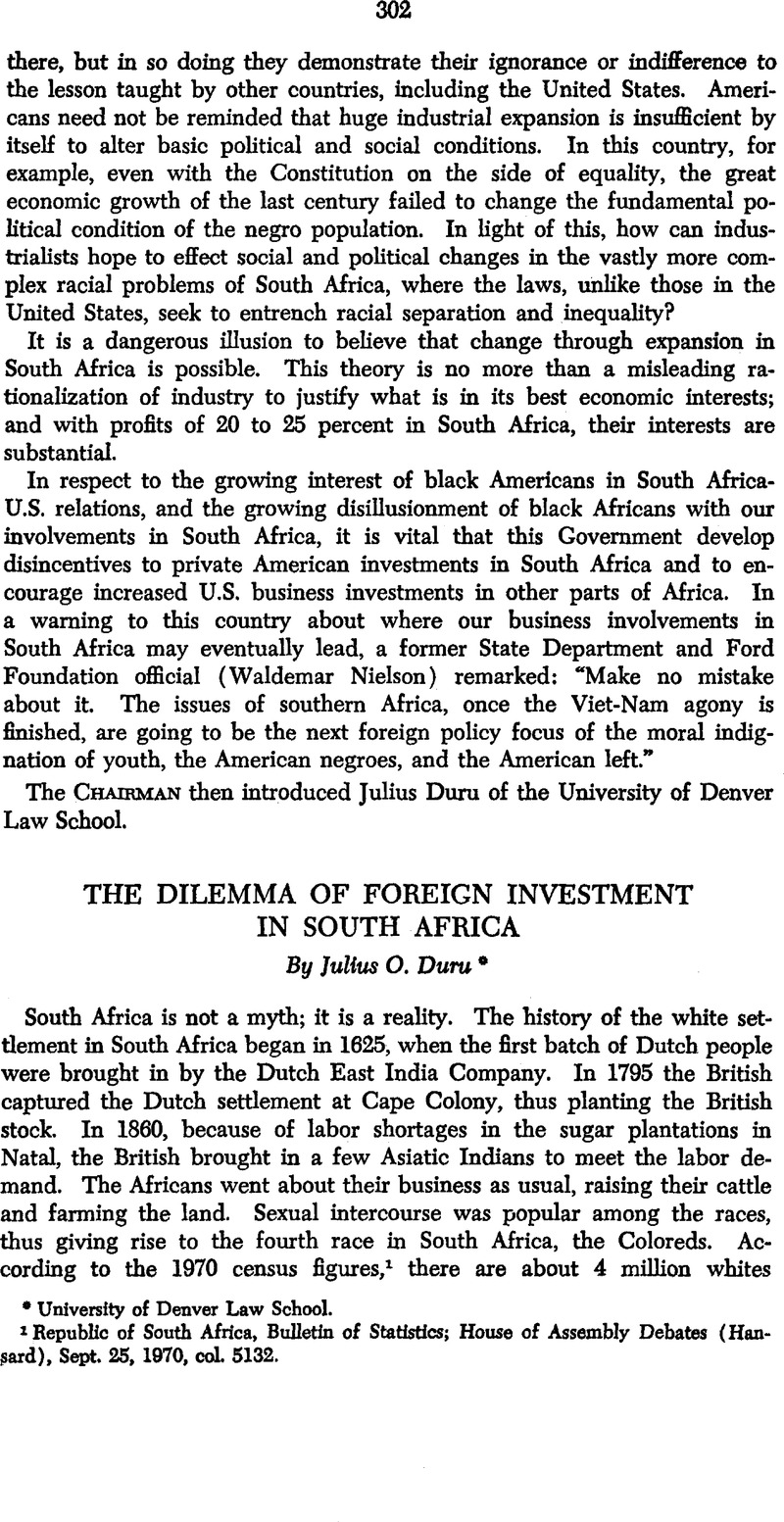No CrossRef data available.
Published online by Cambridge University Press: 28 March 2017

1 Republic of South Africa, Bulletin of Statistics; House of Assembly Debates (Hansard), Sept. 25, 1970, col. 5132.
2 Legge, G., Pratt, C., Williams, R. and Windsor, H., The Black Paper: An Alternative Policy for Canada toward Southern Africa, The Committee for a Just Canadian Policy Toward Africa, Toronto, Canada, 1970.Google Scholar
* 1 Rand is equivalent to U.S. $1.40.
3 The figures and percentages used in this analysis were obtained from the following publications: UN/No. 7/71 Ab. 1971 (71-03654); ST/PSCA/Ser. A/10.
4 Jackson, Blyden B., “Apartheid and Imperialism—A Study of U.S. Corporate Involvement in South Africa,” Africa Today, Vol. 17(5), 1970 Google Scholar.
5 Mr. Charles Engelhard is a very well-known American citizen in Africa. He is Chairman and Director of Engelhard Minerals and Chemical Corp. (EMC) which is the world’s largest refiner and fabricator of precious metals. He is the only American who serves as an Officer and Trustee of the South African Foundation (a South African propaganda organization). He is on the Board of the Witwatersrand Native Labour Association and the Native Recruiting Corporation, two of the official agencies that recruit Africans from Mozambique and Zimbabwe as cheap labor for the mines. He has been a generous financial contributor to the Democratic Party and has represented the United States Government in many international events. Blyden B. Jackson, cited note 4 above, pp. 26-28.
6 A complete list of these companies can be obtained from the American Committee on Africa, 164 Madison Avenue, New York, N. Y. 10016.
7 U.N. Doc. A/AC. 115/L. 292 (March 19, 1971).
8 See U.N. Resolutions: 181 (1963) of Aug. 7, 1963; 182 (1963) of Dec. 4, 1963; 191 (1964) of June 18, 1964; and 282 (1970) of July 23, 1970, S/RES/282 (1970).
9 10 Int. Legal Materials 215 (1971).
10 Cole, E. N.(President), General Motors Corporation. Letter to Stockholders, April 5, 1971.Google Scholar
11 Ibid. 40.
12 Morrison, Rodney J., “Apartheid and International Monetary Reform,” 32 R. Pol. 338-346 (1970)CrossRefGoogle Scholar.
13 International Monetary Fund Arrangement to purchase South African Gold. I.M.F. International Financial News Survey, Vol. XXII, No. 1 (Jan. 9, 1970), and ibid., No. 2 (Jan. 16, 1970).